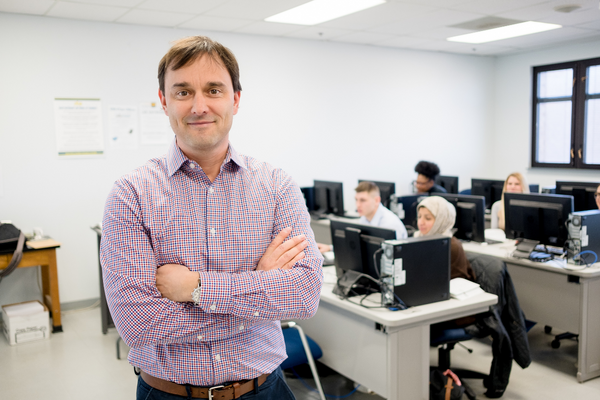Greg Rybarczyk, associate professor of geography at the University of Michigan-Flint, is currently investigating that query by researching an often overlooked food resource: edible natural food plantings. To date, the majority of researchers investigating food access have focused on large-scale supermarkets, community gardens and fast-food restaurants.
Rybarczyk however has turned his attention to bridging the gap between comprehensive food providers and the public. “In food access research, little attention has been paid to urban foraging behavior and that is something that should be more thoroughly examined as an option,” Rybarczyk said.
Rybarczyk is currently using geographic information systems and advanced spatial analysis techniques to help explain where people are currently foraging edible foods, and how to promote this in other Detroit neighborhoods to help people meet their daily healthy food needs. The results of this research may improve the understanding of ways to reduce food insecurity in marginalized neighborhoods. “One of the pressing concerns, as our population grows, is whether or not those in densely-populated urban areas, like Detroit, will be able to source and provide healthy food in the future, which ultimately affects the quality of life.”
Rybarczyk was able to utilize funding from the Office of Research and Economic Development to obtain some “bikeability and walkability” data for Detroit. With the help of Marlena Janda, a 2020 UM-Flint graduate with a bachelor’s degree in environmental science, he has combined that information with data that shows localized socioeconomic status, demographics, where plant resources and edible trees are located in the city, and where in the city people are foraging.
Read more here.



